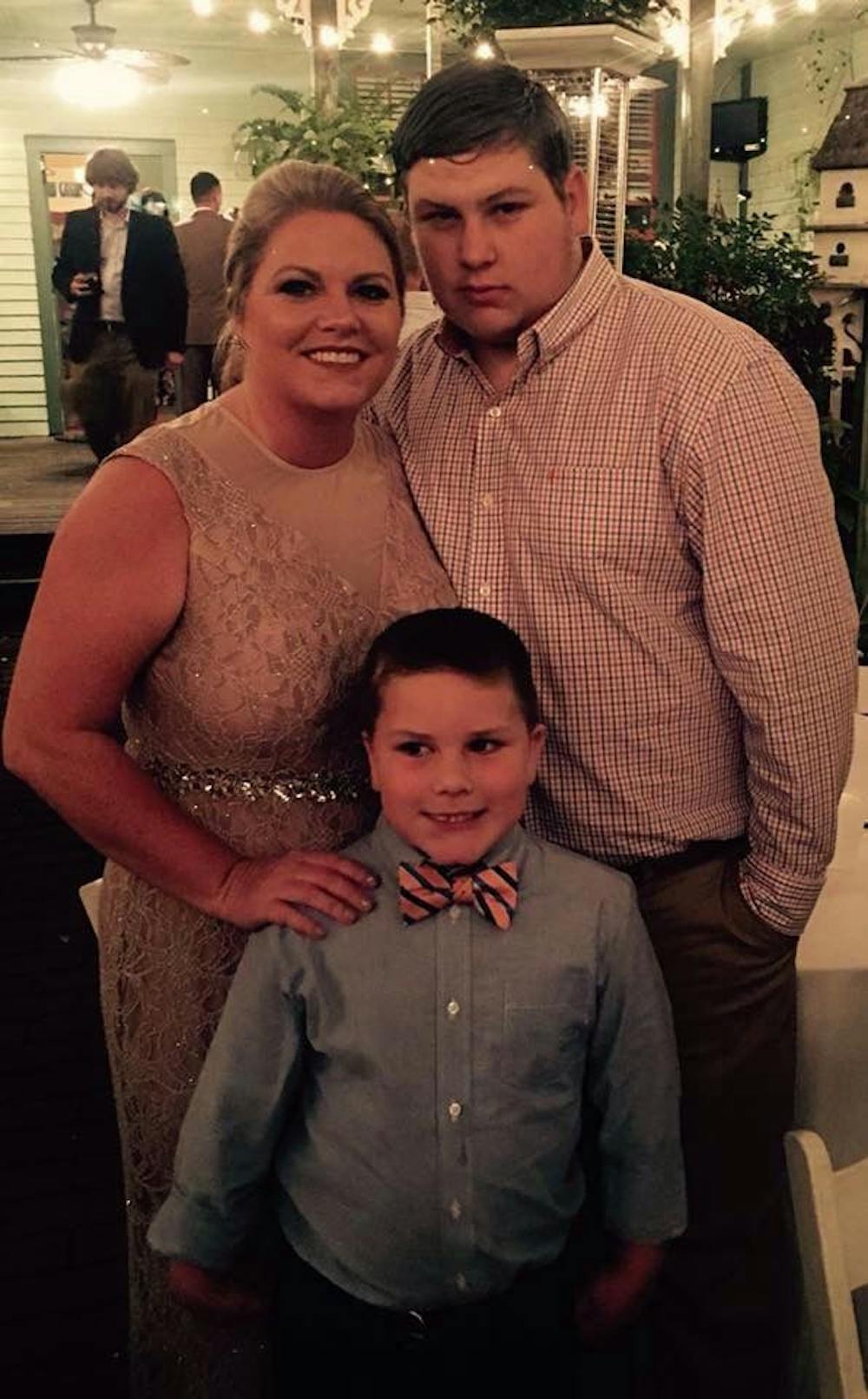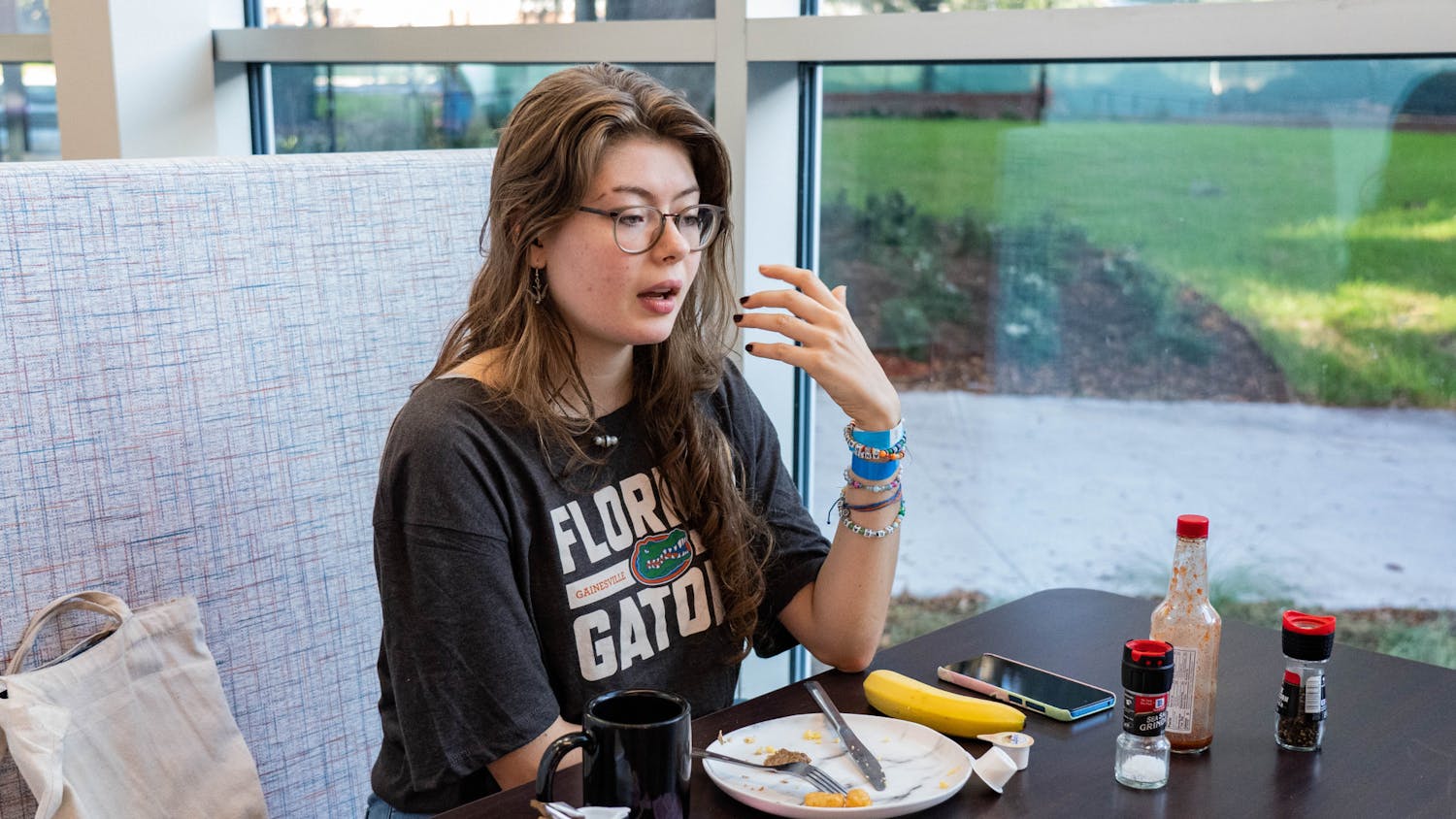Carla Collins keeps her composure.
She kept it when she found she had a heart condition that could kill her.
And she kept it when she became the first to undergo a new medical procedure this year.
Dr. John N. Catanzaro, an assistant professor of medicine at UF College of Medicine – Jacksonville, performed the world’s first regenerative bio envelope implant on Jan. 8. The $1,200 implant is a pouch made out of pig intestine that goes around a defibrillator, or battery-powered heart device, to help it heal more naturally and keep it in place. The pouch and surgery combined cost $24,000.
"I am driven by the opportunity to bring cutting-edge technology to my patients,” Catanzaro said.
Collins, 39, of Jacksonville, said she needed the defibrillator and pouch because she carries the gene for Long QT Syndrome, a life-threatening heart-rhythm condition, which causes fast heartbeats that can trigger fainting, seizures and sudden death. She was officially diagnosed two years ago, and both her mother and uncle suffer from the same syndrome.
The heart device, or cardiac defibrillator, that was placed in her has two parts: a generator and a coil that are placed on either side of the heart, Catanzaro said. When a patient goes into cardiac arrest, the device delivers a shock to the heart.
The bio envelope disguises the generator so the body accepts the device without inflammatory responses like scarring and calcium build-up that may get in the way of a shock to the heart, Catanzaro said.
Catanzaro worked with a Maryland-based regenerative-medicine company to create the XXL SICD CanGaroo Bio Envelope, nicknamed after a kangaroo because it acts as a pouch for the generator, keeping it in place, said Andrew Green, chief business officer at Aziyo Biologics Inc.
Green said the company sees the bio envelope applying to more devices than just cardiac defibrillators. Clinical trials in Jacksonville will soon be conducted to collect more data to show doctors when to use this new device.
“We hope it can be used to help a broad array of different types of products,” Green said.
Since Collins’ procedure was successful, Catanzaro performed the bio envelope and cardiac defibrillator procedure a second time on an 18-year-old patient Jan. 12.
Collins said she hopes to use her story to inspire others to go ahead with adding the pouch to their surgery. And because her two sons, ages 18 and 8, will also need to be tested for the gene, Collins said she hopes research will help the technology evolve further.
“It’s like having a guardian angel with you all the time,” Collins said.
Clarification: This story has been updated to reflect that the cost of the pouch and the surgery is $24,000.
Carla Collins, the first patient to receive a new $24,000 life-saving device, stands with her two sons, Brody, 8, and Chase, 18. Collins said she carries the gene for Long QT Syndrome, a life-threatening heart-rhythm condition, which causes fast heartbeats that can trigger fainting, seizures and sudden death. Both of her children will need to be tested for it as well.






